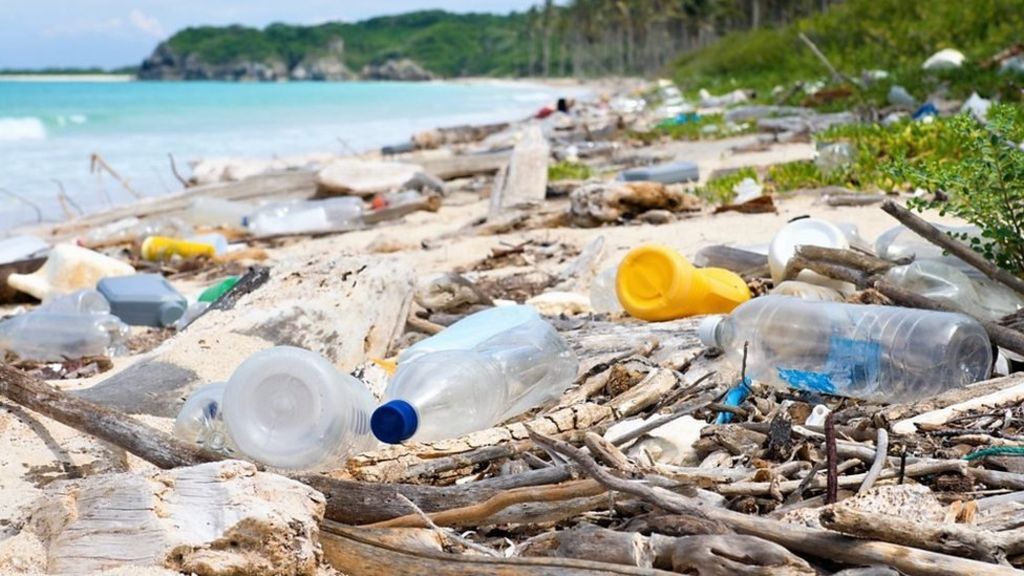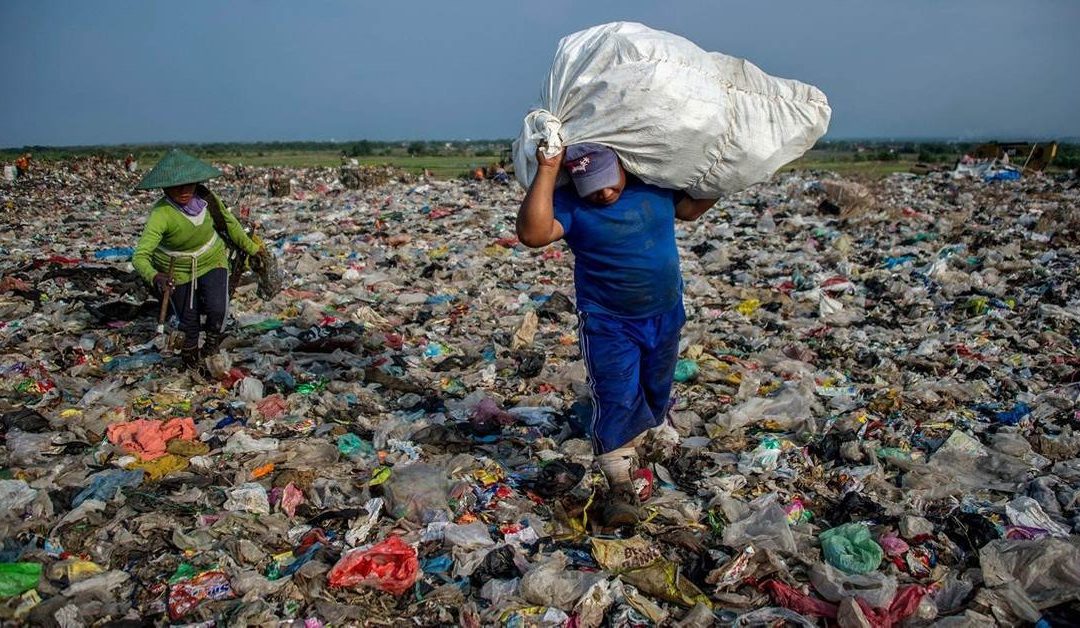Environmental group sues large companies for polluting oceans with plastic

A few minutes every morning is all you need.
Stay up to date on the world's Headlines and Human Stories. It's fun, it's factual, it's fluff-free.
A California environmental group is suing Coca Cola, Pepsi, Nestlé and other large companies for contributing to plastic pollution and misleading consumers about the recyclability of their products.
According to reports, The Earth Island Institute filed the suit in San Mateo County superior court on February 26. In the suit, the environmental group argues that companies selling plastic products that damage the environment should face punishment.
The Guardian reports that the group has asked for unspecified damages. They have also requested a court mandated order for companies like Coca Cola and Pepsi to clean up the plastic waste that environmentalists say has caused a global pollution crisis.
According to Earth Island Institute, much of the plastic that enters the oceans every year comes from a handful of companies that are reliant on single-use products.
Alongside seeking to hold companies accountable for the role they’ve played in polluting the oceans and making them pay to clean up their waste, the suit demands that companies stop advertising products as “recyclable." The suit argues that saying plastic is recyclable is inaccurate as so little plastic gets recycled.
The suit names ten companies which it claims are the top ten producers of plastic pollution in the oceans. Using data from international beach cleanups last year, the companies that create the most plastic waste are Coca-Cola, Pepsi, Nestlé, Clorox, Crystal Geyser, Mars, Danone, Mondel?z International, Colgate-Palmolive, and Procter & Gamble.
According to Earth Island Institute, these companies are responsible for about 15 percent of all single-use plastic packaging.
These companies have engaged in a “decades-long campaign to deflect blame for the plastic pollution crisis to consumers," the suit says.

The lawsuit criticizes the named companies for convincing consumers that recycling can combat the rising amount of plastic pollution. In reality, “these plastics peddlers knew that our nation’s disposal and recycling capabilities would be overrun, and their products would end up polluting our waterways," said Josh Floum, the President of the Board of Directors at Earth Island Institute.
“This is the first suit of its kind,” said Earth Island Institute executive director David Phillips, adding, “These companies are going to have to reveal how much they’ve known about how little of this stuff is being recycled."
Other moves to confront plastic producing companies about the role they play in polluting the oceans are afoot elsewhere in the US.
Senator Tom Udall, a Democrat from New Mexico, and Alan Lowenthal, the Representative for California’s 47th congressional district, introduced the Break Free From Plastic Pollution Act earlier in February.
According to the LA Times, this legislation would create a national recycling program, ban the use of single-use plastics and make using recycled materials in the production of plastic bottles and containers mandatory.
Industry response
In response to the lawsuit, William M. Dermody Jr., a spokesman for the American Beverage Association, which represents Coca-Cola, Pepsi and other makers of non-alcoholic drinks, said, “Plastic waste is a worldwide problem that demands thoughtful solutions,” adding that, “America’s beverage companies are already taking action to address the issue by reducing our use of new plastic, investing to increase the collection of our bottles so they can be remade into new bottles as intended, and collaborating with legislators and third-party experts to achieve meaningful policy resolutions."
Plastic pollution

According to Ocean Conservancy, a nonprofit environmental advocacy group founded in 1972, at least 8 million tons of plastic enter the oceans each year. This number is in addition to the 150 million metric tons that experts believe is already in the world’s marine environments. Recent studies show that 91 percent of plastic produced since the 1950s hasn’t been recycled, with scientists finding plastic in the ocean that was made as far back as 1931.
Research suggests that by 2050 there will be more plastic in the earth’s oceans than fish.
Plastic has already had a severe impact on marine life. Some conservation groups say that plastic kills over 1 million marine animals each year. Not only is plastic deadly for marine life, but traces of it have even appeared in the deepest parts of the oceans.
Scientists have found plastic in the Mariana Trench in the western Pacific Ocean and in the sediment of the Great Australian Bight. Such findings have led scientists to conclude that “plastic is literally everywhere."
They may be right. Recent research by the School of Natural Sciences at Bangor University found microplastic pollution at the top of the highest mountain in Wales. Scientists in Antarctica have even said that the amount of plastic they’ve found locally is a “big worry”.
Adding to their concerns, scientists believe that the pollution they can observe and measure — meaning that which has accumulated on the surface of the seas and has washed up on beaches — only accounts for “maybe a half of 1% of the total" plastic in the ocean.
Demand for plastic increases
But despite scientific alarm and public backlash against single-use plastics, plastic consumption in some parts of the world continue to increase.
Worldwide demand for plastic grew by 3.5 percent in 2019. In parts of Asia, demand increased by as much as 16 percent. According to reports, the production of plastic stood at 359 metric tons in 2018. Nearly one-third went to single-use products, with less than 10 percent ending up recycled.
[article_ad]




Comments ()